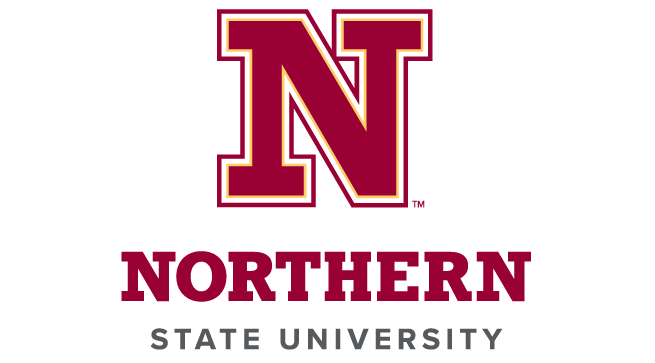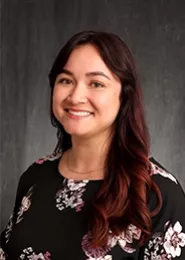Our Team
Our Role
- Coordinate academic support services
- Advocate for students with disabilities
- Promote student development and self-advocacy
- Serve as a resource on disability awareness and accommodations
Vision Statement
Student Accessibility Services will assist Northern State University in creating an institutional climate in which students with disabilities can thrive. Students will receive appropriate services without regard to race, ethnicity, religion, nationality, sexual orientation, socioeconomic status, gender or disability. Students will view Student Accessibility Services as a strong resource for disability awareness, advocacy and student development. Student Accessibility Services staff are strong proponents of equal access for all.
Mission statement
The mission of Student Accessibility Services is to provide equal access to university programs as mandated by the Americans with Disabilities Act and Section 504 of the Rehabilitation Act of 1973. Student Accessibility Services coordinates academic support services, advocates for students with disabilities and promotes student development and self-advocacy while serving as a resource on disability awareness and accommodations.
- Get Started with Student Accessibility Services

ACCESS Northern is Student Accessibility Services’ online hub where students can request, view, and renew accommodations, schedule appointments with Accessibility Services staff, and receive news regarding Accessibility Services.
If you are requesting accommodations for the first time, please complete the Public Request Form.
If you have had accommodations in the past, please log in to your ACCESSNorthern account.
Faculty members can log in at ACCESSNorthern.
Current students, faculty and staff can access more information about Accessibility Services using Knowledge Base article.
Student workers: If you need accommodations as an NSU student worker (student labor or work study), please contact Susan Bostian.
Campus-Sponsored events: If you need accommodations for a campus-sponsored event, please contact the Office of Student Accessibility Services at least 48 hours before the event begins to ensure appropriate arrangements can be made.
- Eligibility
To be eligible for accommodation, students should:
- Contact Student Accessibility Services in Student Center 222 as early as possible
- Submit any required medical or other diagnostic documentation of disability or limitations
- Participate in additional evaluations if required
- Make timely, appropriate disclosures and requests for accommodations
- Actively participate in the securing of accommodations and auxiliary aids
- If necessary, apply for funding for specialized support services from vocational rehabilitation agencies
- Accommodations and Student Responsibilities
Reasonable accommodations will be made, as necessary, to prevent discrimination against qualified applicants or students with disabilities. These accommodations may not affect the substance of the educational programs or compromise educational standards. However, they should be designed to provide the student with a disability with an opportunity comparable to that of any other student to participate successfully in university programs.
Reasonable accommodations may include, but are not limited to:
- Alternative testing (extended time, quiet testing location)
- Accessible classroom/location/furniture
- Advance notice of assignments
- Alternative ways of completing assignments (e.g., oral presentation versus written paper)
- Assistive computer technology
- Assistive listening devices
- Auxiliary aids and services (note-takers, lab or library assistants, readers, scribes)
- Captions for film and video material
- Course or program modifications
- Dining service accommodations
- Document conversion (alternative print format: braille, large print, tape, electronic, raised lettering)
- Early syllabus
- Financial aid accommodations
- Housing accommodations
- Priority registration
- Academic advising
- Referral services to campus, community, and state agencies
- Learning disabilities consultation and strategy instruction
- Taped lectures
- Flexible attendance policy (for medical purposes)
Accommodation Process and Student Responsibilities
- Students with disabilities who require accommodation must seek assistance from Student Accessibility Services in a timely manner, usually prior to the start of classes or as soon as a disability becomes known. Those who desire an admissions modification must request it on the application form.
- Student Accessibility Services and the student with a disability will discuss the interaction between the disability and the academic environment to determine reasonable accommodations. Consultation with faculty, staff, and outside professionals regarding essential elements and reasonable accommodations will occur whenever necessary.
- In cases where a determination of disability is reached, Student Accessibility Services will write individualized letters to the student's instructors certifying the student's eligibility and their approved accommodations.
- Students with disabilities will be responsible for contacting Student Accessibility Services if reasonable accommodations are not implemented in an effective or timely way. Student Accessibility Services will work with NSU personnel and students with disabilities to resolve disagreements regarding recommended accommodations.
- Students with disabilities who believe they have been discriminated against on the basis of the disability may file a grievance with the Affirmative Action office in Room 213 of Krikac Administrative Building or the Student Affairs office in Student Center 222.
It can take some time to apply for accommodations based on a student's disability. Delay on the part of the student in seeking accommodations or in meeting required conditions may result in limitations on the ability of the university to provide reasonable accommodations.
- Resources
Disability Documentation Policies
An Open Letter to Parents of Students with Disabilities About to Enter College
Comparison of the Individuals with Disabilities Act (IDEA), Section 504 of the Rehabilitation Act (Section 504) and the Americans with Disabilities Act (ADA) - IDEA, Section 504 and ADA affect people with disabilities. This chart illustrates different ways these laws apply to students as they transition from K-12 education to college.
- NSU Policy
NSU's policy is to:
- Comply with Section 504 of the Rehabilitation Act of 1973
- Comply with the Americans With Disabilities Act of 1990
- Ensure that no qualified person will, solely because of disability, be denied access to, participation in, or the benefits of, any program or activity operated by or at Northern State University
- Define disability status according to the definitions used by the Americans with Disabilities Act of 1990
- Offer educational opportunities, programs, and activities to each person who has met academic and technical standards for admission to Northern State University
- Provide the most integrated setting possible for all students
- Make reasonable accommodations for students with disabilities; such accommodations must not fundamentally alter the nature of university programs or cause undue financial or administrative burden, and make reasonable accommodations that can be provided without lowering academic or other essential performance standards
- Confidentiality
Student Accessibility Services is committed to ensuring that all information regarding a student is maintained as confidential as required or permitted by law. Any information collected is used for the benefit of the students. This information may include test data, grades, biographical history, disability information, performance reviews and case notes.
Guidelines about the treatment of such information have been adopted by Student Accessibility Services and are rigorously followed and shared with students. These guidelines can be found within the Board of Regents policy for Confidentiality of Student Records.
No one has immediate access to student files at Student Accessibility Services except staff from that office. Any information regarding disability gained from medical examinations or appropriate post-admissions/hiring inquiry shall be considered confidential and shall be shared with others within the institution on a need-to-know basis only.
Disability-related information is to be treated as medical information is treated. For example, university faculty and staff do not have a right or a need to access diagnostic or other information regarding a student's disability; they only need to know what accommodations are necessary to meet the student's disability-related needs.
If a student has requested an accommodation, the student will be informed as to what information is being provided to their instructors regarding the request. To protect confidentiality by assuring limited access, all disability-related information must be filed with Student Accessibility Services.
Information in files will not be released except in accordance with federal and state laws, which require release in the following circumstances if a student:
- States he/she intends to harm himself/herself or another person(s).
- Reports or describes any physical abuse, neglect, or sexual abuse of children or vulnerable adults within the last three years (this includes the occurrence of abuse or neglect to the student if he or she was under age 18 at the time of the abuse);
- Reports the use of an illegal drug for non-medical purpose during pregnancy; or
- Reports or describes sexual exploitation by counseling or health care professionals.
A student's file may be released pursuant to a court order or subpoena. A student may give written authorization for the release of information when she or he wishes to share it with others. Before giving such authorization, the student should understand the information being released, the purpose of the release, and to whom the information is being released. Information will not be released without consent unless it is required by federal or state law.
Student Accessibility Services may charge a reasonable fee for costs incurred in connection with the copying of information. Student Accessibility Services will retain a copy of all information provided. If a student wishes to have a record expunged, he or she must make a written request to the assistant director for Student Accessibility Services, who will decide whether it is necessary for the office to retain the record.

